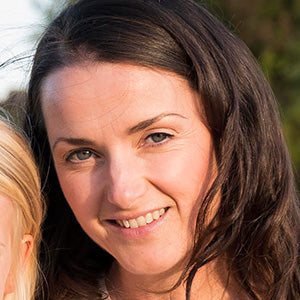Following the conclusion of COP26 - the global summit on climate change which took place in Glasgow - was it all just a load of "blah, blah, blah" in the words of Greta? We take a look at what went right at the event and what could have been better...
After months of preparation and two key weeks of intense negotiations and meetings, it came down to the wire over whether there would be an agreement signed by all 197 nations attending COP26.
The climate summit, postponed by a year due to Covid, was supposed to have taken place at the very beginning of this critical decade in the fight against climate change.
At the eleventh hour the wording over whether ‘phasing out’ or ‘phasing down’ coal was the key sticking point from key emitters India and China, in what Boris Johnson has described as a “frustrating intervention”.
But the fact that an agreement was signed at all is an achievement of the work undertaken.
“It was always going to be difficult coming to a consensus,” says Richard Allan professor of climate science at the University of Reading - and one of the key authors of August’s damning IPCC report.
“But there has been some ambition and progress,” he adds.
So what were the key outcomes?
COAL

Most notable are pledges from more than 40 countries to move away from coal by 2030, with others, including the US, China and India agreeing to gradually ‘phase down’ their coal sectors.
“It’s disappointing to see big emitters like China and the USA not being more ambitious here,” comments Richard.
Poland, a coal intensive economy, came in for criticism by some for performing a U-turn on this issue hours after signing the agreement to quit coal by 2030 - clarifying that they didn’t intend to phase out the fossil fuel until 2049.
But there was a scheme announced to finance South Africa's move away from a high-carbon economy which, if successful, could be a model to help other countries transition.
METHANE

There was also the US and EU-led proposal to cut methane emissions by 30% of present day values by 2030.
Methane is one of the most potent greenhouse gases and responsible for a third of current warming from human activities.
“This is something that will have a rapid response, because it’s a stronger greenhouse gas than carbon dioxide,” says Richard.
Great news, but some see this as relatively low-hanging fruit, since methane is not as important as carbon dioxide in the grand scheme of things due to the sheer volume of CO2 being emitted.
CLIMATE CHANGE DENIAL

One of the biggest successes of the conference, from Richard’s point of view, is the acceptance and prominence of climate science - and consequent lack of climate change denial.
“Going back only ten years, there were still people questioning the science.
“Incorrectly,” the meterologist adds.
“It was usually people with quite strong agendas against cutting greenhouse gas emissions, but things have moved on quite substantially since then.”
US / CHINA RELATIONS

Aside from the scientific nature of the conference there is, unsurprisingly, a lot of geopolitical power play taking place at international summits of this nature.
The major breakthrough for Winston Kwon, senior lecturer at the University of Edinburgh’s Business School, is the diplomatic relations between the US and China.
“I think that’s significant,” says the expert in global strategy and sustainability.
“If you think about how decisions are made, they are not normally hashed out in the meeting. It all goes on outside of the meeting,” he says.
This step closer to one another represents a key alliance in the ongoing work to combat climate change, beyond the conference.
“The most important thing from this COP hasn’t been decided yet,” Winston adds. “That’s still happening now and it’s about what comes out of this.”
DEFORESTATION

Reversing deforestation by 2030 has been hailed as one of the milestones of this COP, but many have greeted this landmark agreement with scepticism.
“I'm somewhat ambivalent,” says Richard, adding: “It's important but these things have been promised before.”
The inclusion of Brazil is seen as significant, but Winston cautions that under the current administration the country “has a lot of bad actors that tend to be in positions of power”.
What this means for the pledges made in Glasgow, only time will tell, but it’s unrealistic to think the country will be able to crack down on illegal logging altogether in the short term.
CLIMATE FINANCE

Above and beyond everything else, financing climate action, mitigation, and so-called ‘loss and damages’ is one of the key areas where consensus needs to be met.
In Glasgow the deal has promised to double adaptation finance by 2025 - so this means developing countries will receive more money to fund climate action.
However, the $100 billion per year funding set out in the original UN framework convention on climate change did not materialise.
Richard describes the progress in this area as “disappointing”, commenting that many of the pledges made at COP26 are “contingent on the finances being available”.
The ‘loss and damages’ concept is a system, setting out to compensate vulnerable islands and developing nations for climate change-based destruction which has largely been driven by years of emissions from developed nations in their rise to prosperity.
The agreement in Glasgow did, for the first time, lay out a pathway for addressing this issue by establishing a dedicated agency - but stopped short of setting up a fund to compensate for climate-based losses and damage.
The minister for the environment from the highly vulnerable Caribbean island, Grenada, called this progress the "bare minimum".

The overarching goal hammered out in the Paris Climate Agreement was that climate warming should be kept well below 2°C, and ideally at 1.5°C above pre-industrial temperatures.
This means that over a 20-year period, the average global temperatures should not be more than 1.5 - 2°C warmer than global averages recorded in the period between 1850 - 1900.
“Based on all the pledges we’ve seen, it seems to bring things down from a 3°C warmer world to around a 2°C warmer world - and perhaps below,” says Richard.
“The only caveat being of course that pledges aren’t action.”
So does this mean 1.5°C is dead in the water, as some have suggested?
Richard categorically disagrees with this: “The whole point of the Paris Agreement and the infrastructure involved is ramping up ambition over time. It’s recognising that people can’t just change overnight.
“In the long term this increase in ambition could still keep alive the ambition of a 1.5°C warmer world,” he comments.
Winston says: “I would caution people about living and dying by the announcements that have been made - or taking them too seriously.
“Mostly they are bargaining positions because the majority of things are not done within these 14 days.
“I don’t think anybody’s position is set. They’re still staking out and bargaining.”
Richard agrees that this is a constant process and there is still plenty of work to be done: “It’s not dead in the water, it was never going to be that we achieve this simple goal and then it’s done.”
'Optimistic but Pragmatic'
Both allude to the fact that catastrophic consequences of climate change are inescapable: “We’ll probably start to right the ship but not until massive environmental damage and some of the more catastrophic disastrous events have started happening frequently” says Winston.
Faced with the facts that every year we’re still seeing emissions increase; China says it won’t reach peak emissions until 2030, and Russia didn’t even attend COP it can be easy to suggest this summit was a failure.
But the issue of climate is not a done deal and work continues apace all the time. It will be the struggle of our lifetimes - not just for a two week period.
“The fact this process is continued and the science is now unquestioned... I’m optimistic but pragmatic,” says Richard.
“Optimistic that tangible and substantial progress has been made towards achieving the goals of the Paris Climate Agreement, but I am pragmatic in the sense that the amount of climate change we can still expect is also going to be substantial and damaging.”
So yes, there was certainly good COP and bad COP during Glasgow's milestone climate conference, but with continued work and continued pressure “optimistic but pragmatic” is as much as any of us can currently hope for.
With love,
Lucy
X



 Author: Lucy Todd
Author: Lucy Todd